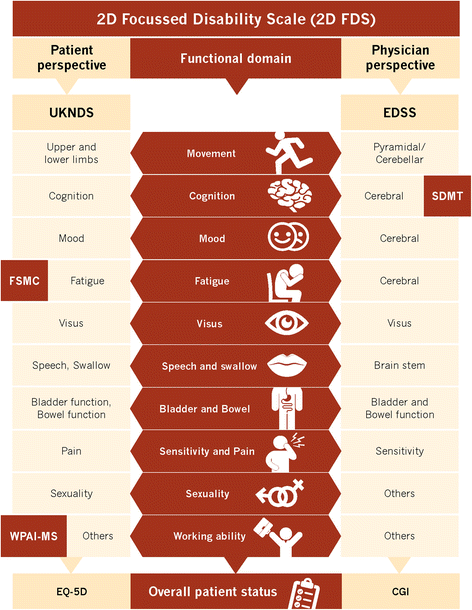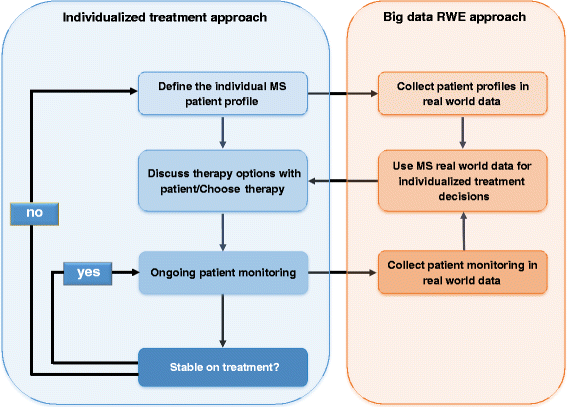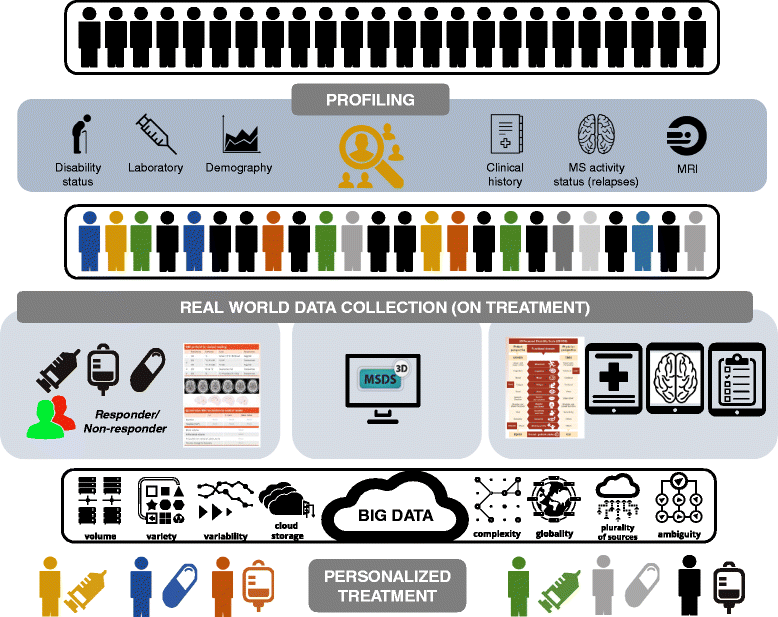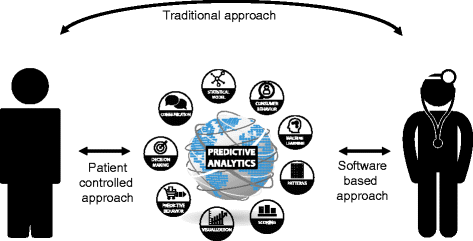Multiple sclerosis: clinical profiling and data collection as prerequisite for personalized medicine approach
- PMID: 27484848
- PMCID: PMC4971685
- DOI: 10.1186/s12883-016-0639-7
Multiple sclerosis: clinical profiling and data collection as prerequisite for personalized medicine approach
Abstract
Multiple sclerosis (MS) is a highly heterogeneous disease as it can present inter-individually as well as intra-individually, with different disease phenotypes emerging during different stages in the long-term disease course. In addition to advanced immunological, genetic and magnetic resonance imaging (MRI) profiling of the patient, the clinical profiling of MS patients needs to be widely implemented in clinical practice and improved by including a greater range of relevant parameters as patient-reported outcomes. It is crucial to implement a high standard of clinical characterization of individual patients as this is key to effective long-term observation and evaluation.To generate reliable real-world data, individual clinical data should be collected in specific MS registries and/or using intelligent software instruments as the Multiple Sclerosis Documentation System 3D. Computational analysis of biological processes will play a key role in the transition to personalized MS treatment. Major breakthroughs in the areas of bioinformatics and computational systems biology will be required to process this complex information to enable improved personalization of treatment for MS patients.
Keywords: Multiple Sclerosis Documentation System; Multiple sclerosis; Personalized medicine.
Figures





References
Publication types
MeSH terms
LinkOut - more resources
Full Text Sources
Other Literature Sources
Medical

